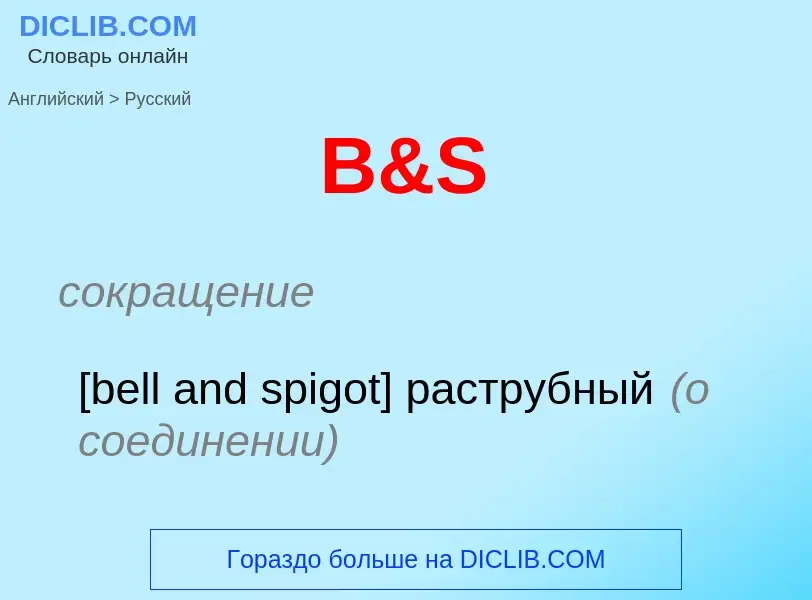Tradução e análise de palavras por inteligência artificial ChatGPT
Nesta página você pode obter uma análise detalhada de uma palavra ou frase, produzida usando a melhor tecnologia de inteligência artificial até o momento:
- como a palavra é usada
- frequência de uso
- é usado com mais frequência na fala oral ou escrita
- opções de tradução de palavras
- exemplos de uso (várias frases com tradução)
- etimologia
B I S - tradução para Inglês
<i>сокращениеi>
[bell and spigot] раструбный <i>(о соединении)i>
<i>[bi:]i>
<i>существительноеi>
<i>общая лексикаi>
2-я буква английского алфавита
<i>в грам. знач. прил.i> (<i>также как компонент сложных словi>)
имеющий форму буквы B
B-образный
второсортный
второразрядный
второстепенный
второй (по счёту)
вторая буква англ. алфавита
условное обозначение чего-л., следующего за первым по порядку, сортности и т. п.
<i>американизмi>
отметка «хорошо» (B)
<i>математикаi>
b (<i>обозначение известного числаi>) (b)
<i>музыкаi>
си (B)
си
Wikipédia
The Institutional Brokers' Estimate System (I/B/E/S) is a service founded by the New York brokerage firm Lynch, Jones & Ryan and Technimetrics, Inc. I/B/E/S began collecting earnings estimates for U.S. companies around 1976 and used the raw data to calculate statistical time series for each company. The data subsequently was used as the basis for articles in academic finance journals attempting to demonstrate that changes in consensus earnings estimates could identify opportunities to capture excess returns in subsequent periods. After starting with annual earnings estimates and estimates of "Long Term Growth, the database later was expanded to include quarterly earnings estimates. This allowed for the analysis of "Quarterly Earnings Surprises." Other innovations made possible by the I/B/E/S data included estimates for various equity indexes on a "top down" basis (made by strategists and economists) and estimates made on a "bottom up" basis (by individual analysts) for those same indexes. In the mid-1980s I/B/E/S began to expand its dataset to include companies trading in international markets. Lynch, Jones was sold to Citigroup in 1986. Barra bought I/B/E/S in 1993, selling it to Primark two years later. Thomson Financial purchased Primark in 2000. Successor companyThomson Reuters spun off its financial division under the name Refinitiv in 2018.
The I/B/E/S database currently covers over 40,000 companies in 70 markets. It provides to a client base of 50,000 institutional money managers. More than 900 firms contribute data to I/B/E/S, from the largest global houses to regional and local brokers, with US data back to 1976 and international data back to 1987. [1]
It is unclear why slashes are used in the acronym, vs. periods or nothing at all, but this is its common usage. Users of the data have hypothesized it to be to "demonstrate their uniqueness as a database", a la using "@" instead of "at".

![A metal letter "B" with its [[homophone]], a [[bee]] insect, standing on it A metal letter "B" with its [[homophone]], a [[bee]] insect, standing on it](https://commons.wikimedia.org/wiki/Special:FilePath/Big-small-B.jpg?width=200)




![Late [[Renaissance]] or early [[Baroque]] design of a B, from 1627 Late [[Renaissance]] or early [[Baroque]] design of a B, from 1627](https://commons.wikimedia.org/wiki/Special:FilePath/Newes ABC Buchlein MET DP855602.jpg?width=200)



